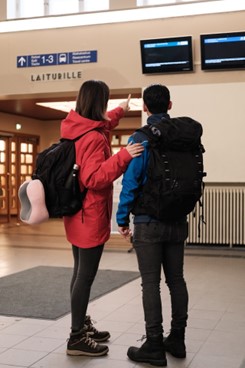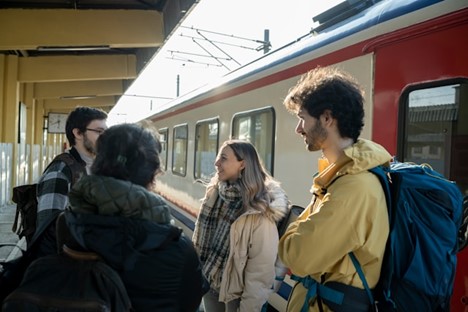Traveling to foreign countries can be an enriching and transformative experience, offering opportunities to immerse oneself in new cultures, explore breathtaking landscapes, and connect with people from different walks of life. However, one of the most common challenges travelers encounter is navigating language barriers. Whether you’re ordering food in a local restaurant, asking for directions, or seeking assistance in an emergency, effective communication is essential for a smooth and enjoyable travel experience. Below, Monica Svobodny of Minnesota explores practical tips for overcoming language barriers while traveling, including essential phrases, translation apps, and cultural sensitivity tips for effective communication.
Essential Phrases
Learning a few key phrases in the local language can go a long way in facilitating communication and showing respect for the local culture. Here are some essential phrases to memorize before your trip:
Greetings: “Hello,” “Goodbye,” “Please,” and “Thank you” are universal expressions of politeness that can help establish rapport with locals.
Basic Questions: Learn how to ask for directions, inquire about prices, and request help in emergencies.
Food and Dining: Familiarize yourself with common menu items, dietary preferences, and how to order food and drinks.
Numbers: Knowing how to count and understand prices can be invaluable when shopping or negotiating prices.
Emergency Phrases: Learn how to ask for help, report emergencies, and communicate essential medical information.

Translation Apps
In today’s digital age, translation apps are powerful tools for bridging language barriers and facilitating communication. Here are some popular translation apps to consider:
Google Translate: Google Translate offers text, voice, and image translation capabilities for over 100 languages. It’s a versatile and reliable option for on-the-go translation needs.
Microsoft Translator: Microsoft Translator provides real-time translation for conversations, text, and images across multiple platforms, including smartphones and desktop computers.
iTranslate: iTranslate offers a user-friendly interface and offline translation capabilities, making it ideal for travelers without reliable internet access.
TripLingo: TripLingo is designed specifically for travelers, offering language learning resources, cultural tips, and customizable phrasebooks tailored to specific destinations.
Cultural Sensitivity Tips
Effective communication goes beyond language proficiency; it also requires cultural sensitivity and awareness. Here are some tips for navigating cultural differences while communicating in foreign countries:
Respect Local Customs: Take the time to learn about local customs, traditions, and etiquette before your trip. Understanding cultural norms can help you avoid unintentionally offending locals.
Use Nonverbal Communication: Nonverbal cues such as gestures, facial expressions, and body language can convey meaning even when language barriers exist. Be mindful of cultural differences in nonverbal communication to avoid misunderstandings.
Be Patient and Flexible: Communication in a foreign language may take longer and require more effort than in your native tongue. Be patient, speak slowly and clearly, and use simple language to facilitate understanding.
Seek Assistance When Needed: Don’t hesitate to ask for help if you’re struggling to communicate. Locals are often eager to assist travelers and appreciate the effort to engage with their language and culture.
Learn from Mistakes: Accept that you may make mistakes or encounter misunderstandings along the way. Use these experiences as learning opportunities to improve your communication skills and cultural awareness.
Conclusion
Navigating language barriers while traveling can be challenging, but with the right approach and resources, it’s entirely manageable. By learning essential phrases, utilizing translation apps, and practicing cultural sensitivity, you can effectively communicate with locals and enhance your travel experience. Remember that effective communication is not just about words; it’s about building connections, fostering mutual understanding, and embracing cultural diversity. So, embrace the opportunity to step out of your comfort zone, engage with people from different backgrounds, and let the shared language of humanity unite you on your travels.
